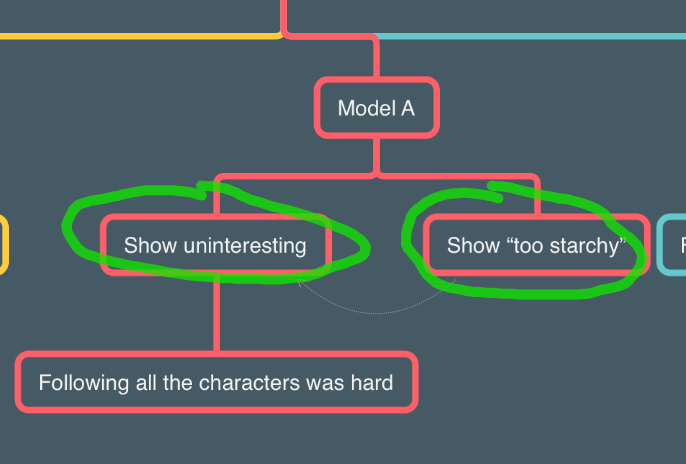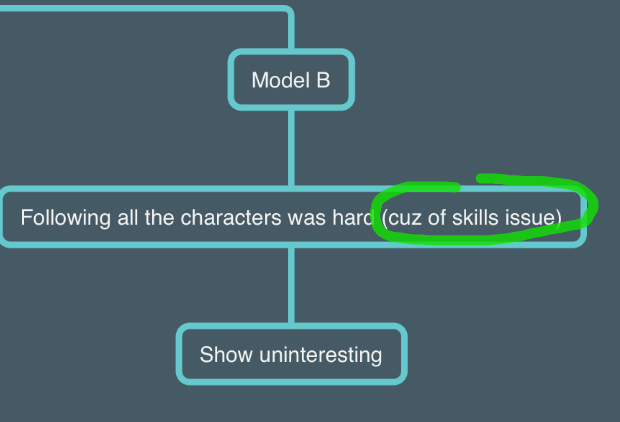Emotions & Moral Judgments, Part 16
Dialog about the tenth chapter in Leonard Peikoff’s book "Understanding Objectivism". Discusses the role of pre-existing judgments and skills issues in one's ability to enjoy a work, with Perry Mason as an example.
Disclaimer: I’m not an expert on philosophy. I’m just a person trying to figure things out for myself, and speak for no one but myself.
Adam (A): Hi.
Bob (B): Hi. Let’s continue our discussion of Lecture Ten, “Emotions and Moral Judgment”, in Leonard Peikoff’s book Understanding Objectivism.
A: OK.
B: So in Part 15, we further considered Peikoff’s discussion about the role of emotions in choosing among optional cases. We talked about how different forms of entertainment can reflect different values, some of which might be problematic, with a particular focus on professional wrestling and horror movies as examples. We also considered whether Peikoff was wrong in his attitude towards Perry Mason. We’ll be focused on this point for this discussion, and won’t get to new material from the book today.
A: OK.
B: OK. Let’s pick up the discussion about Perry Mason. So we had closed with you arguing (in part) the following: Peikoff conceded that his own inability to follow the number of characters in Perry Mason interfered with his enjoyment of the show. Perry Mason was not a show designed for elites but for the masses, and Peikoff is smart. This inability of his would affect not just his enjoyment of Perry Mason but other shows as well. Thus, Peikoff should have worked on this issue.
A: Yeah.
B: And so then the counter is, what if he didn’t want to? What if he preferred to watch/follow simpler storylines as his entertainment/relaxation? What if that was his goal?
A: So to be clear, I don’t think he should have repressed his preference to watch stuff he found simpler/easy to follow like James Bond movies or whatever. But I have an idea that one should not let the current extent of one’s abilities/skills be the limit of one’s life, one’s enjoyment, etc. And so if one enjoys watching TV or movies, as many people do, one should be open to cultivating an interest in stuff that’s harder/more complex/more nuanced than the stuff one can currently appreciate, and not just be happy with doing something on a “lower”/less difficult level indefinitely.
B: But what if Peikoff prefers to direct his self-improvement energies towards stuff like learning about philosophy or grammar or logic, and wants his entertainment to just be relaxing and easy?
A: I think it’s fine if the entertainment is easier than what he’s doing in his professional life or for his more intellectual hobbies or whatever. But if something is an area of interest for you, like watching TV or movies or playing a game, it seems like you should take some percentage of your attention to that interest to working on further developing it in some way, rather than just doing the same thing at the same level indefinitely.
It’s kind of like, if you use a program on your computer a lot, you should figure out keyboard shortcuts for it and stuff, instead of just navigating the menus with the mouse for all the years that you use the program.
And some people are really reluctant to do that kind of thing with their entertainment. Like some people will find it really weird that you watch TV programs sped up, and I’ve seen many comments online where people are talking about that sort of thing and someone will ask “do you still enjoy it?” And the premise of that question there, which is that doing something efficiently will somehow ruin the enjoyment of an activity in some way — that efficiency is for work and not fun — is really bad. I’ve also noticed in this regard that people are often okay with speeding up lectures they consider “educational”, and sometimes are okay with doing this for podcasts — which I think they may regard as educational — but will be very much not okay with doing this for TV and movies. I think that’s interesting and bad.
B: There are actual issues with speeding up TV and movies. E.g. it can make action scenes hard to follow.
A: Yeah but, to bring it back to the discussion about Peikoff and following a certain number of characters, dealing with such issues is something you can practice and get better at. Like, it gets easier to follow stuff at double speed the more you practice, and you can also slow stuff down when it matters.
FWIW I tried watching a few minutes of a later Perry Mason show, “The Case of the Maligned Mobster” (this was made much later on than the stuff Peikoff would have been talking about - I watched it cuz it was easy to find on YouTube). And yeah there were a number of characters introduced at the beginning and I didn’t catch all the names but they were mostly some kind of archetype (Sleazy Rich Guy, Mafia Guy, Seductress Lady, Sad Wife) and I’m sure I would have been able to follow the episode. And that fits with my expectations. It was popular entertainment, not sophisticated programming for elites.
And I think that people bring their attitudes to stuff and that makes things seem “harder” or “easier”. Like Peikoff said he found Perry Mason too starchy and preferred James Bond type stuff. So I think that affected his willingness to watch Perry Mason. Some stuff could be objectively difficult. For example, A Song of Ice and Fire has lots of characters, and I can see it being difficult to follow all them and all the different families and everything. But you know, the people that are into it make guides and wikis and stuff so to help people do that.
B: You seem to be saying that one’s level of interest is relevant to the level of effort one is willing to expend in some activity. And I think Peikoff would say “Yeah, and that’s fine.” And he might say you’re being rationalistic in how you’re approaching the issue - that you have a presumption that someone should align their levels of interest with the worth of an activity according to some objective assessment apart from their actual existing values and interests.
A: I think I’ve taken that sort of mistaken approach in the past. But I honestly think that Peikoff sort of slides into the “emotionalist” approach in a lot of his analysis. I’m not saying that people should try to impose interests on themselves from up high, apart from their actual interests and desires. But there is a specific point I am trying to make here. And that is that there is are relationships between a judgment about something being interesting and other things. As one example of such a relationship, if you have a pre-existing judgment that something is uninteresting, that affects your willingness to spend mental attention on it, which can make it seem harder to follow. As another example, if you have some skills issue that affects your ability to engage with some material, then that is going to affect your estimate of the interestingness of that material.
Here’s a tree I made. It helped me clarify my thoughts some:

So we have a tree depicting three models of why someone might find following the characters on a show hard. On the left, the points about 1) following the characters in Perry Mason being difficult and 2) thinking the show is too starchy and 3) thinking it is uninteresting are separate and independent points in the mindmap tree. In the middle and on the right, we have different relationships. In the middle, the “Show uninteresting” point is a parent of “following all the characters was hard.” “Show ‘too starchy’” is a sibling to “Show uninteresting”, and there’s an arrow linking it to finding following the characters hard to follow. And the idea there that the judgment about interestingness is affecting or governing how hard it is to follow the characters. A judgment about the show being uninteresting was made, and then the difficulty in following the characters results from that. And the show being “too starchy” is related to thinking the show is uninteresting, and is kind of a concrete or related point, and is also affecting the difficulty Peikoff has in following the characters. We might imagine that if there were to be a James Bond movie with tons of characters, the different judgment that Peikoff has about James Bond movies might cause him to have a different experience of the difficulty of following all those characters.
And then on the right we have a simple tree where “Following all the characters was hard (cuz of skills issue)” is a parent. And you notice that we’ve added a parenthetical about the cause of following the characters being hard. And then underneath that node is the point about the show being uninteresting. So the skills issue here is the pre-existing issue, and the judgment about interestingness follows from that. So this is another story or model about what might be going on in such a situation as Peikoff describes.
So my point here is that the issue of following the characters being hard isn’t just emerging out of the ether somewhere. It is related to a cause. It’s not some inherent limitation in Peikoff’s “crow” or in human cognition, and it’s not an issue of following the show requiring the intellect of a genius. Normal people (and here I have in mind a person whose intellect would not be considered extraordinary but who is a “fan” of some work/universe) follow fictional works considerably more complex than any episode of Perry Mason. Some super fans do stuff like learn fake languages. By the way, I’m not remotely trying to exhaustively depict potential relationships here - these are just a couple that jumped out at me.
And my suggested approach is not to encourage people to suppress their desire to watch non-Perry Mason shows or force themselves to watch Perry Mason. It’s to check your premises or work on skills issues.

Like in our middle tree, we might question the premises regarding the show being uninteresting, too starchy, whatever, and if those premises were successfully challenged or overturned, we might have a different evaluation of the difficulty of the show. Or maybe we won’t challenge or overturn those premises. That’s okay too! We shouldn’t assume the outcome in advance. But the point is to not treat these judgments as a black box not open to revision.

Alternatively, if we were to work on the skills issue regarding following the multiple characters, we might find that our evaluation of the interestingness of the show changes.
So anyways I think I depart from Peikoff here because I think that such things can be usefully examined and are not entirely an optional matter that’s the result of unknowable causes or ideas taken on early in life or anything like that. And this may seem like a lot of analysis regarding the potential of appreciating Perry Mason, but that’s not really the point. The point is that one should not let the current extent of one’s abilities/skills be the limit of one’s life. And Peikoff specifically brought up a skills issue being related to his enjoyment. So that’s why I’m talking about it.
Let’s end the discussion here for today.
B: OK!